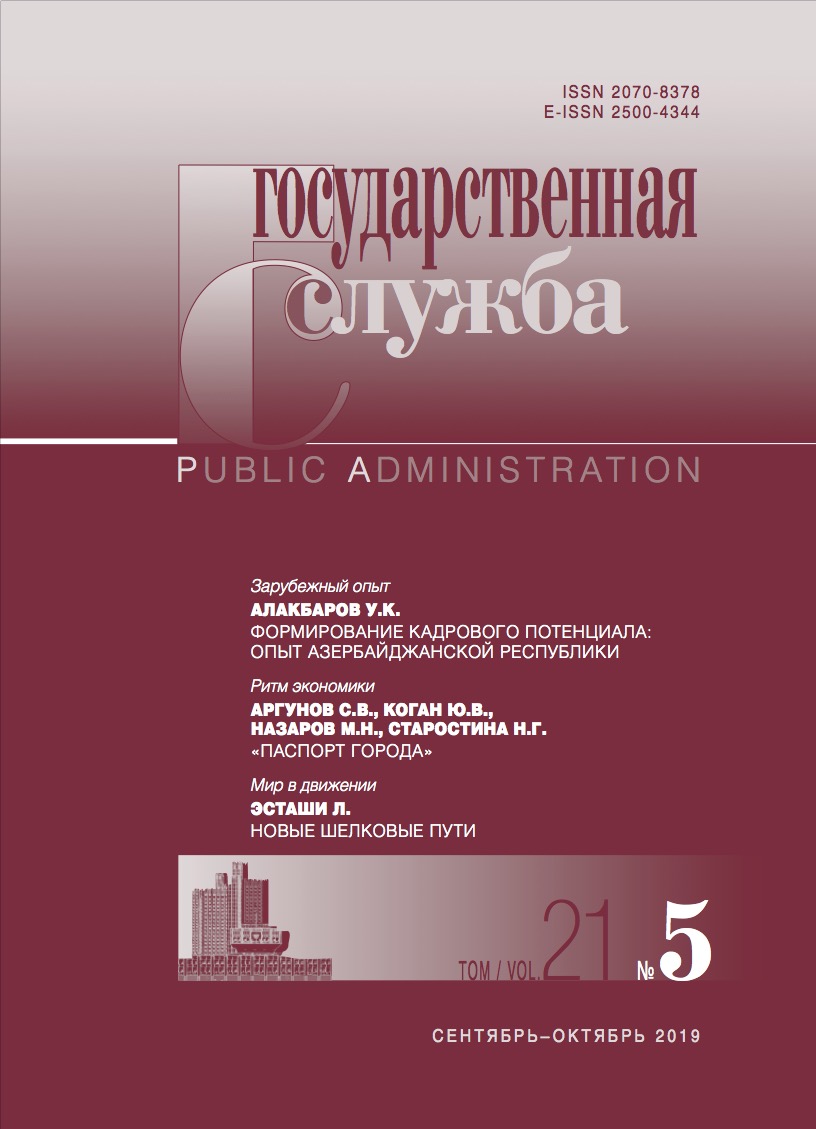Recommended link to article:
EVGENY V. OKHOTSKYа
SERGEI S. FROLOVа
аMoscow State Institute of International Relations (University) of the Ministry of Foreign Affairs of the Russian Federation
DOI: 10.22394/2070-8378-2019-21-5-24-28
Abstract:
In the practice of public administration, managers of various levels of government inevitably face the problem of increasing the efficiency of their activities while striving to achieve the intended result. The combination of effectiveness and efficiency is quite possible and necessary to achieve the goals of various structural units within the framework of public administration. However, it should be recognized that the simplicity and speed in achieving the goals of effectiveness leads to such practical situations when the heads of public services achieve effectiveness to the detriment of effective activity in relation to the achievement of management goals. In this regard, it is important to identify and analyze the aspects of the work of the operators and the conditions that can significantly improve its efficiency. Such an analysis should begin with an examination of the problem of setting and implementing the goals of public administration. The need for a targeted approach is due to the fact that the achievement of these goals determines the success of management within complex systems. It should be recognized that any failure to set goals (at all levels of government) leads to serious flaws in the administration of public structures.
Keywords:
public administration, state civil service, mechanisms of managerial influence, forms and methods of managerial activity, effectiveness and efficiency of management, components of effective management, functions of management objectives
Received:
April 24, 2019
References:
Ackoff R. The art of problem solving. M.: Kniga po trebovaniyu, 2012. 221 p. In Russian
Adizes I. Corporate lifecycle management. M.: Mann, Ivanov i Ferber, 2015. 512 p. In Russian Drucker P. Effective leader. M.: Mann, Ivanov i Ferber, 2013. 232 p. In Russian
Frolov S.S. Sociology of organizations. M.: Gardariki, 2001. 384 p. In Russian Goodin R. The theory of institutional design. Cambridge: Cambridge University Press, 1996. 288 p. In English
Management of the organization. Encyclopedic dictionary. M.: INFRA-M, 2001. 821 p. In Russian
Brown M.G. Beyond the balanced scorecard. How analytical indicators improve the efficiency of company management. M.: OlimpBiznes, 2012. 248 p. In Russian
Nye J. Soft power: the means to success in world politics. N.Y.: Public Affairs, 2005. 191 p. In English
Ringen S. The Devils Nation: democratic leaders and the problem of obedience. M.: Publishing House ‘Delo’; RANEPA, 2016. 392 p. In Russian
Articles in Open Access mode are published under the Creative Commons Attribution 4.0 International (CC BY) license.

